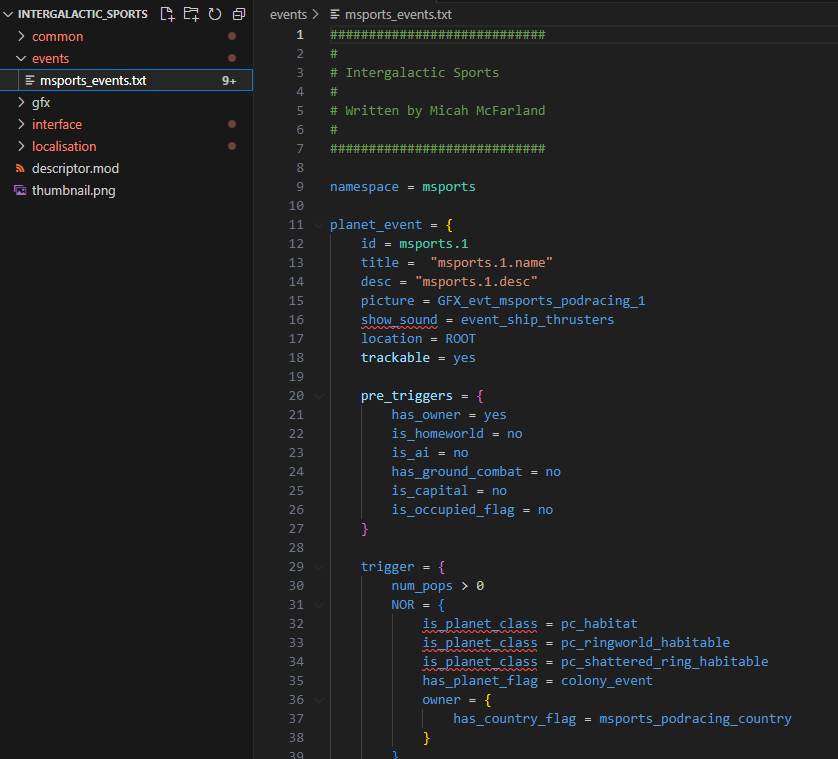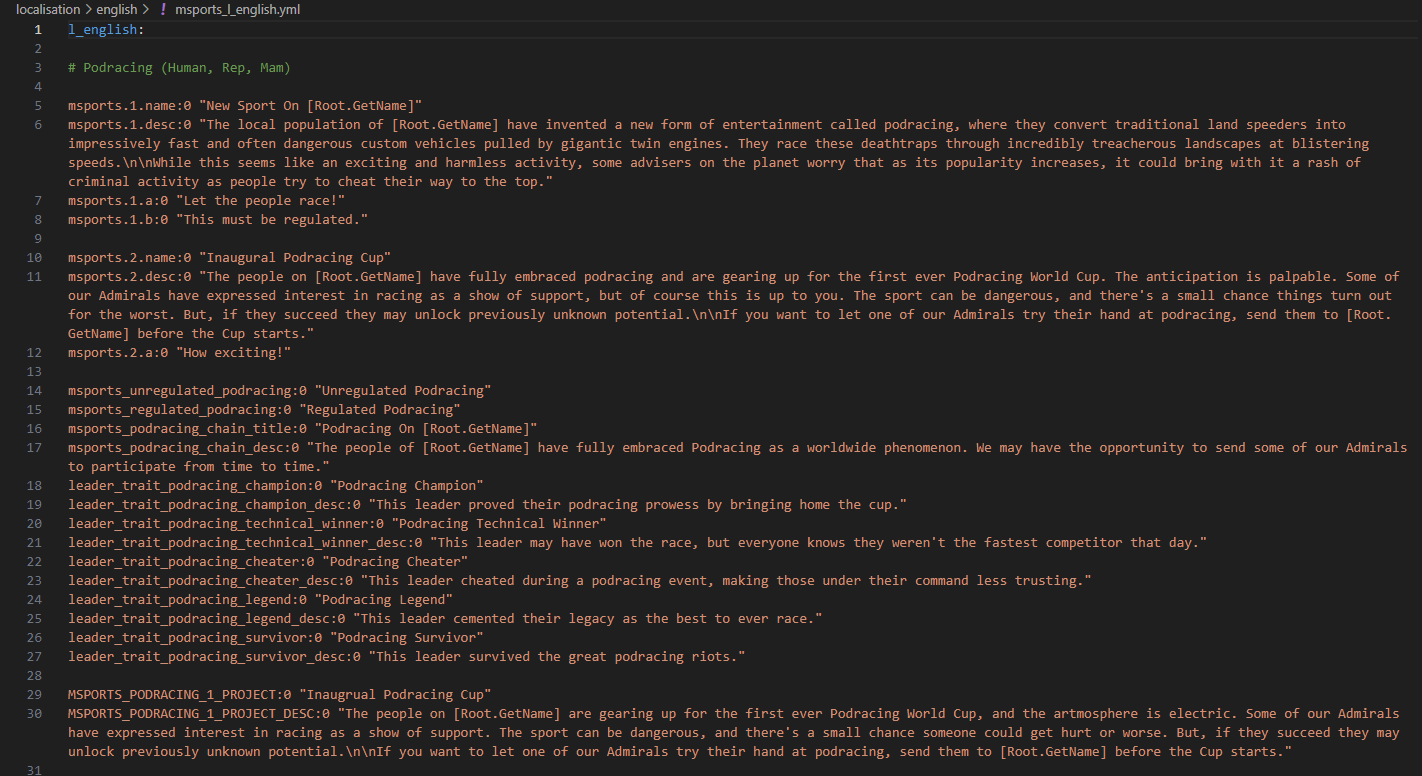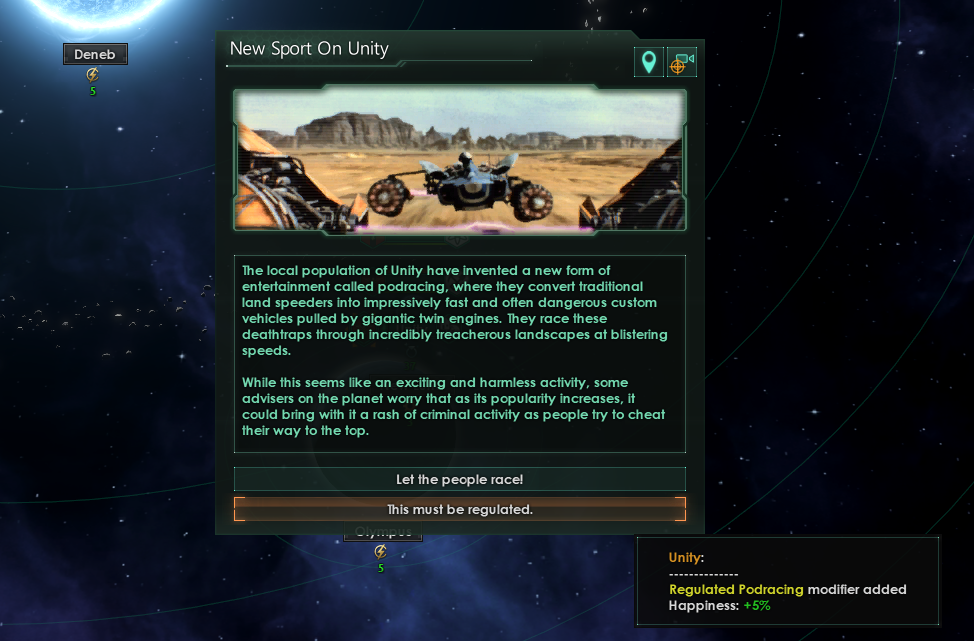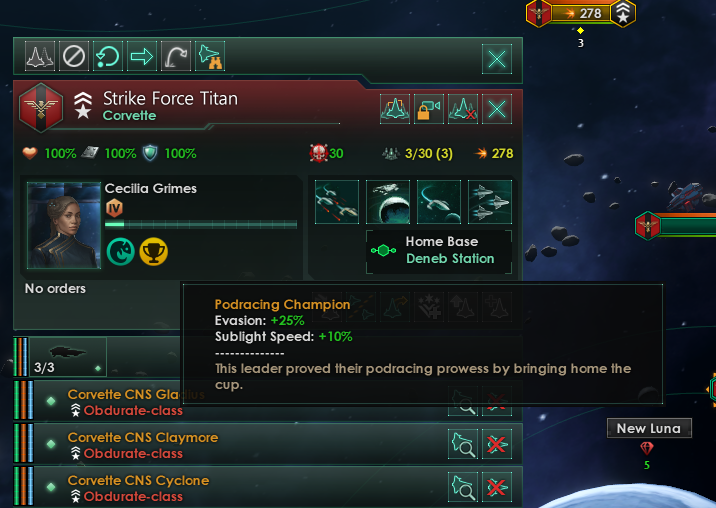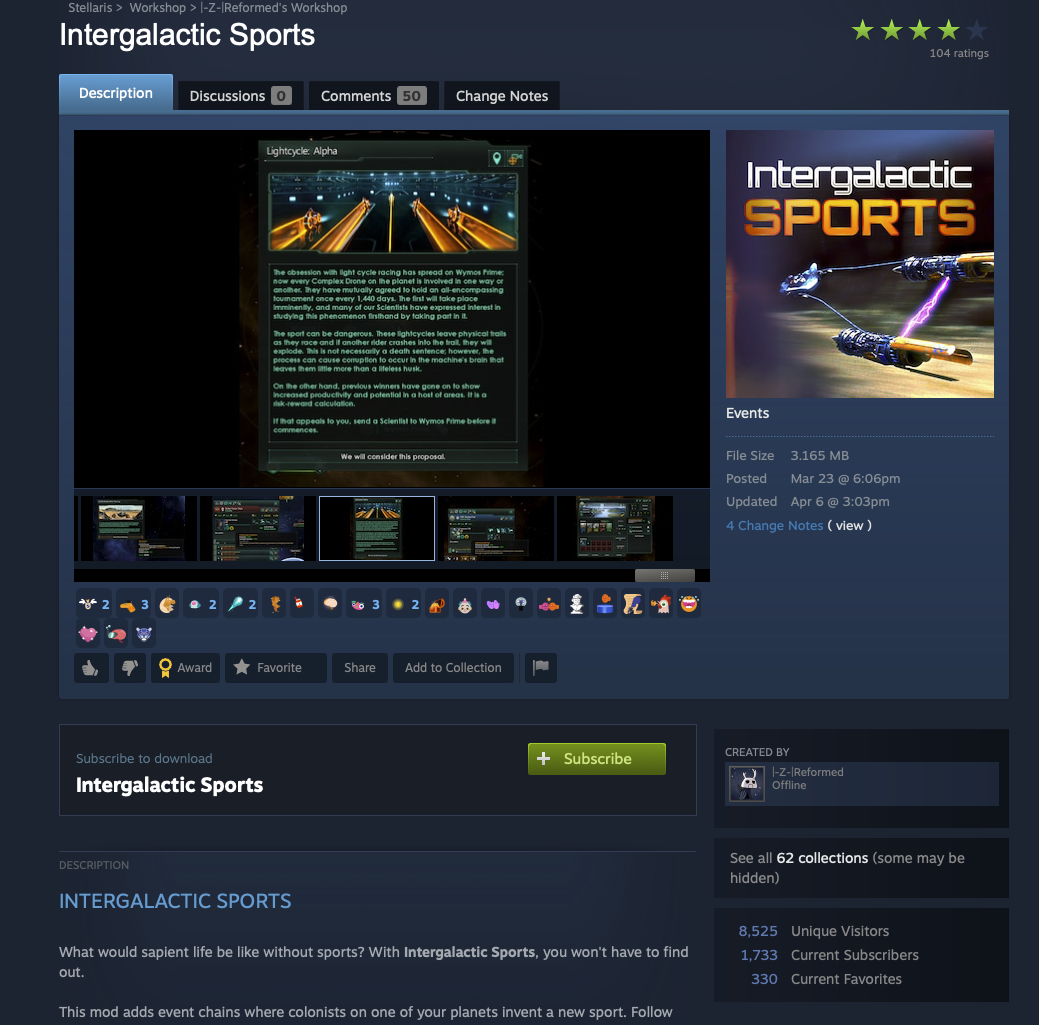I took an event chain I was familiar with from the game — Migrating Forests — and traced its footprints through every game file it touched to figure out how they all interacted with each other. Luckily, Stellaris is incredibly modder-friendly, so once I learned the syntax for their engine it became really easy (and super fun) to piece it all together.
The thrill I had when it all clicked into place for me was magical. I could see the building blocks and began to understand how to make my mod actually work. There’s a lot of fun in building a traditional branching narrative, but there was something uniquely thrilling about creating a bunch of distinct scenarios for the player to encounter that could build off each other to create a larger narrative unique to that player.
Once your planet invents Podracing, you get to either encourage or discourage it, which leads to different boosts for that planet and different possible outcomes for the first racing event. You get to choose whether or not to send an Admiral to participate, and if you do, they have a chance of winning, losing, or even dying.
The outcomes are randomized with different weightings and you can’t get the same outcome more than once in a single playthrough. I also wrote some late game events that depend on whether or not you’ve gotten a certain outcome. For example, there’s one race where your Admiral will lose to a young kid in a slapped-together silver podracer (sound familiar?). If you get that event, there’s a chance that in the last ever Podracing event, the kid will show up again as an adult and cement his legacy as a local legend.
